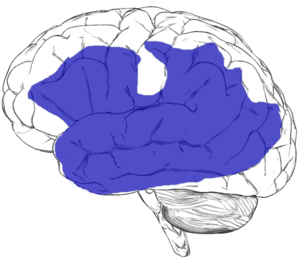What is Aphasia
What is Aphasia ?
overview
Aphasia is a disorder that affects the ability to communicate, impacting speech, writing, and comprehension of language. It can occur suddenly following a stroke or head injury, or gradually due to a degenerative disease or brain tumor. The severity of aphasia varies based on the extent and cause of brain damage. Treatment for aphasia involves addressing the underlying condition and utilizing speech and language therapy to relearn and practice language skills. Family members can also play a role in helping the person with aphasia communicate effectively
Symptoms:
Aphasia is a symptom of some other condition, such as a stroke or a brain tumor.
Common symptoms include:
Speaking in short or incomplete sentences
Speaking in sentences that don't make sense
Substituting one word for another or one sound for another
Speaking unrecognizable words
Having difficulty finding words
Not understanding other people's conversation
Not understanding what they read
Writing sentences that don't make sense
Different patterns of aphasia may be classified as Broca's, Wernicke's, Transcortical, Conduction, Mixed, or Global aphasia, but many people with aphasia have unique symptoms, strengths, and weaknesses that do not fit into these categories.
Seek emergency medical care if there are sudden difficulties with speaking, understanding speech, word recall, or reading and writing, as these may be signs of a serious underlying condition.
Causes:
• The most common cause of aphasia is brain damage resulting from a stroke, which can occur due to a blockage or rupture of a blood vessel in the brain. The loss of blood to the brain leads to brain cell death or damage in areas that control language.
• Brain damage caused by a severe head injury, a tumor, an infection, or a degenerative process can also cause aphasia. In such cases, aphasia usually occurs with other cognitive problems, such as memory problems or confusion.
• Primary progressive aphasia refers to the gradual degeneration of brain cells in the language networks, resulting in language difficulty that develops gradually. This type of aphasia may progress to a more generalized dementia.
• Temporary episodes of aphasia can occur due to migraines, seizures, or a transient ischemic attack (TIA), which occurs when blood flow is temporarily blocked to an area of the brain. People who have had a TIA are at an increased risk of having a stroke in the near future.
Complications:
• Aphasia can create numerous quality-of-life problems because communication is an essential part of daily life. Communication difficulties may affect job performance, relationships, and day-to-day functioning.
• Difficulty expressing wants and needs can result in embarrassment, frustration, isolation, and depression.
• Other problems may occur together with aphasia, such as difficulty moving around and problems with memory and thinking.
















Mujhe bhi ye hi bimaari hai
ReplyDeleteJaldi thik ho jaoge Dost.
Delete